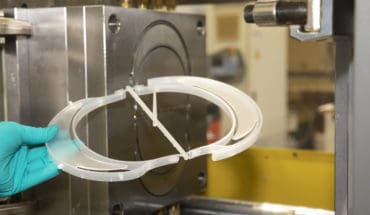Two renowned biomedical researchers have been awarded £1 million to undertake world-leading research into diseases such as prostate cancer and mitochondrial disease at Northumbria University.
The grant funding has been awarded by the Academy of Medical Sciences as part of its commitment to attract and retain talent from across the globe to take up Professorships in the UK.
Only three of these prestigious awards have been granted in this round. Two of them went to researchers who have recently been recruited by Northumbria University, a clear sign of the University’s growing reputation for research excellence.
Fewer than 20 awards have been made since the inception of the scheme, and this is only the second time that two awards have been made to the same university.
The award will support Professor Emile R. Chimusa to establish his bioinformatics and computational biology research programme at Northumbria University, after moving from the University of Cape Town.
Professor Simon Johnson has joined Northumbria from the University of Washington and the Seattle Children’s Research Institute where he has been investigating genetic mitochondrial disease, in particular Leigh Syndrome.
The grants will enable the new Professors to conduct research that advances medical science and translate their developments into benefits for patients and the wider society.
Professor Chimusa uses novel approaches in artificial intelligence (AI) to look at genomic studies and assess how certain groups in society are susceptible to diseases, in particular, prostate cancer.
He plans to use his grant to establish a new interdisciplinary research team of experts in artificial intelligence and statistical genetics, as well as wider health and clinical researchers.
He said: “I’m over the moon to join the other Academy of Medical Sciences Professorship awardees and be the first Black African to receive this prestigious award.
“This funding will help me to make a step-change in disease-risk prediction, using AI, and will lead, to name just one example, to an improved risk prediction of prostate cancer in diverse ethnic groups. I’m excited to combine the UK’s network with my existing African networks to deliver these benefits for patients.”
Professor Johnson’s research specialises in the pathology and physiology of genetic mitochondrial disease, looking at ways that treatment can be best targeted. He has focused particularly on Leigh syndrome, a severe neurological disorder developing in infancy that affects the central nervous system and leads to progressive loss of mental and movement abilities.
He said: “I am incredibly grateful for the opportunities provided by the Academy of Medical Sciences Professorship and can’t overstate how much of an impact this will have on the transition of my research programme to the UK.
“The funds will allow me to continue uncovering the role of mitochondria in health and disease, to understand how mitochondrial diseases develop. These are a large group of disorders with a wide range of symptoms, and the mechanisms for disease are currently poorly understood. I hope that my line of research will lead to treatments for these life-threatening diseases.
“In addition, the network and mentorship opportunities provided by the Academy will allow me to rapidly adapt to and incorporate into the UK biomedical research community.”
Northumbria University recently announced ambitious plans for its new Centre for Health and Social Equity which will develop and harness the University’s research, education and knowledge exchange expertise to help meet the health and social equity issues of multiple stakeholders and communities in the city, region and beyond.
Professor Dianne Ford, Pro-Vice-Chancellor for Northumbria University’s Faculty of Health and Life Sciences said: “Both Professor Chimusa and Professor Johnson are relatively new professorial appointments to the Faculty, who we were already delighted to have attracted and to have welcomed into our ever-developing excellent research environment.
“These awards are real testament to the quality of these two world-leading researchers in their respective areas and also, I hope, acknowledge the support we provide to our research leaders, as well as across the full research landscape, in the Faculty.
“They will also help to support our ambitions to further increase our research and impact in the area of Health, aligned to the establishment of Northumbria University’s major strategic project – the Centre for Health and Social Equity (CHASE). My warmest congratulations go to both colleagues; your achievements are truly impressive.”
The third recipient of the award, Professor Christine Goffinet, will join the Liverpool School of Tropical Medicine where she is looking at how the human defence system can limit the spread of viruses, particularly HIV.
Professor Tom Solomon CBE, Vice President (International) at the Academy of Medical Sciences, said: “We are proud to provide funding for talented researchers across the world, as part of our strategic priority to support all researchers to reach their full potential. By investing in these research leaders, we are ensuring the UK remains an attractive place for exceptional biomedical and health research, and we are strengthening the Academy’s global networks and our impact on health internationally.”
The Academy of Medical Sciences Professorship scheme, which has been running since 2019, is generously supported by the Department for Science, Innovation and Technology (DSIT).
- Gut microbiome could delay onset of type 1 diabetes - 3rd April 2025
- The da Vinci 5 Robot Is Set To Transform Bariatric Care: - 31st March 2025
- Beyond money: the hidden drivers fuelling child food insecurity - 31st March 2025






